What could my voice possibly add to a consensus classic like Dracula? “It generally holds up and is worth your time” is probably the best I can do, but I’ll try to add more.
(more…)-
Book Review: Horus Rising, by Dan Abnett
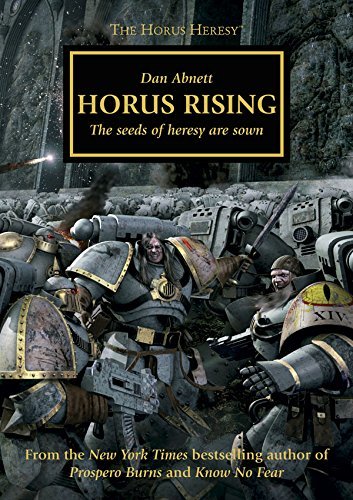
Dan Abnett is good at writing war stories, and 40K is a franchise with a whole bunch of war. He gets into the fraternity of soldiers, the moments of dramatic irony, unexpected heroics, uneasy alliances, and epic charges into battle. Simple warriors polish their armor and reload their weapons and reflect on simple truths. The villains fall into two categories: the arrogant or clueless who are on our side but aren’t doing it the right way, and the enemy who exists to be shot and stabbed.
(more…)
Horus Rising is one of those. It follows Primarch Horus and his particular flavor of Space Marine, the Luna Wolves, as they prosecute their Great Crusade. We primarily spend time with Captain Loken, a no-nonsense and likable straight man who finds himself entrusted with more power and responsibility during a major turning point in the war of compliance. It’s about to all go very bad for everyone everywhere, but not quite yet.
I feel almost stupid saying anything more; it’s like describing the types of meals you could find at a Mexican restaurant. It’s not much of a surprise. -
Book Review: The Broken God, by David Zindell
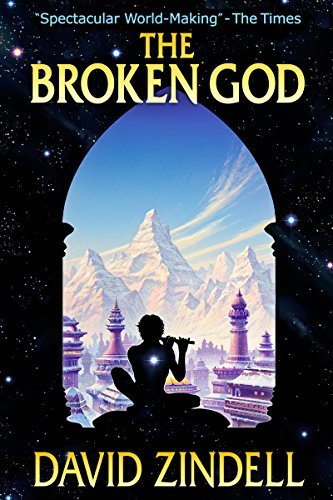
I imagine most authors would consider themselves ambitious. Nobody sets out to create a work of art that is purposefully mundane or uninspired – at least I don’t think they do.
(more…)
What became clear 100 pages into The Broken God is that there is a very big difference between ambitious, and capital-a *Ambitious*. What David Zindell has done with his book is tackle as many grand and challenging ideas as possible: religion, Godhood, humanity’s purpose, philosophy, morality, memory, and even the nature of reality itself. -
Book Review: The Fisherman, by John Langan
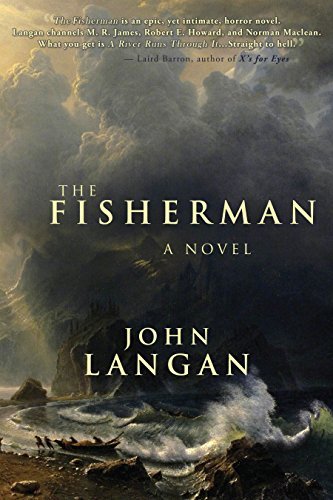
The Fisherman is a rambling horror story about a fishing enthusiast, Abraham – the first of many overt references – recounting the most difficult time of his life, and how fishing saved and then later nearly doomed him. Abe lays out nearly the entire plot in the first few chapters: his somewhat boring life will be damaged by a great tragedy, he’s going to encounter something very spooky related to fishing, and someone named Dan won’t have a good time.
(more…)
Purely by accident, this book came to me at the perfect time of my life. It’s October, the spooky month. This year I got into fishing for the first time, stumbling into it by happenstance and then making it a core part of my life. Like the protagonist, I have discovered the positive, regulating effect fishing has on depression. I was as primed as possible, for better and worse. -
Book Review: The Lion, the Witch and the Wardrobe, by C.S. Lewis
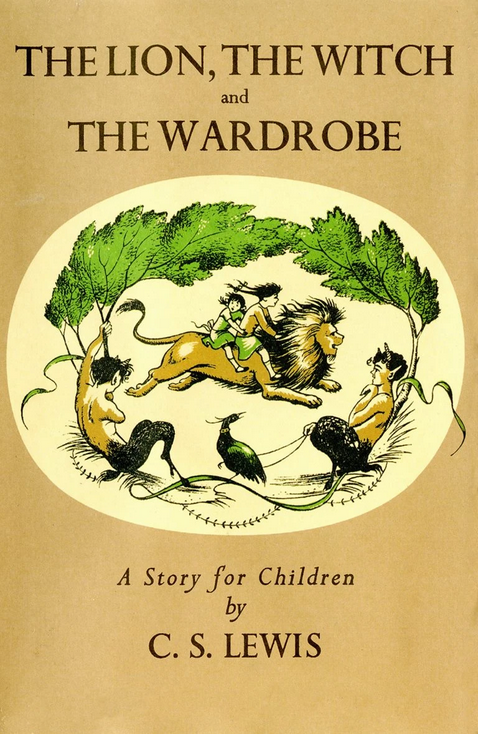
I somehow missed out on Narnia growing up, even though I know the basic structure and many plot beats through osmosis.
I’m 37 now, and with two young kids of my own I decided to take a look both for myself and them.
It’s a really, really good book. Narnia is warm, cozy, magical, and comfortable. Nothing is complicated: good people and good deeds are rewarded, bad people always lose at the end. Scary events don’t linger and your hopes are never misplaced.
The narration is wonderful, it’s the exact tone and style of a kindly grandfather reading a well-loved story besides a pleasantly warm hearth.
It’s perfect children’s fantasy. -
Book Review: Red Rising, by Pierce Brown
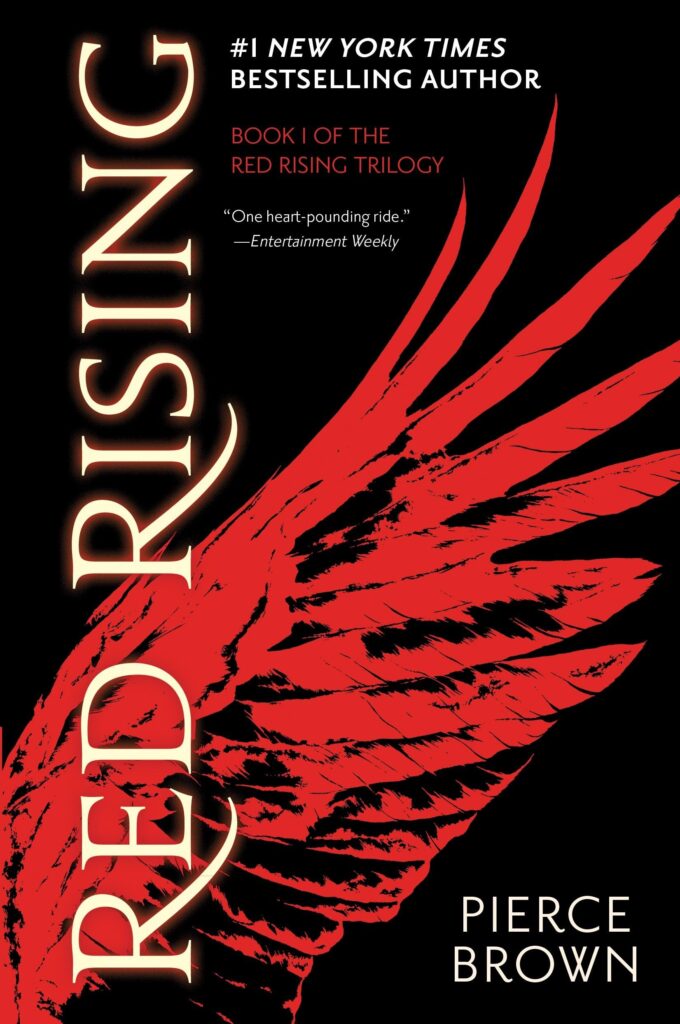
In the future, humanity has colonized the solar system, but is now stratified in a rigid class system that is enforced by science and government alike. Golds are at the top – the nobles, the warrior-knights, the leaders – while Reds – the miners, janitors, and dregs – are at the bottom.
Red Rising is the expected revenge and revolution story you’d guess from this premise, and it features a lowly Red – Darrow, a miner – rising up to bring down the Golds and the entire system along with them. It doesn’t stray far from expectations, but where it does is very interesting.
(more…) -
Book Review: Saevus Corax Deals with the Dead
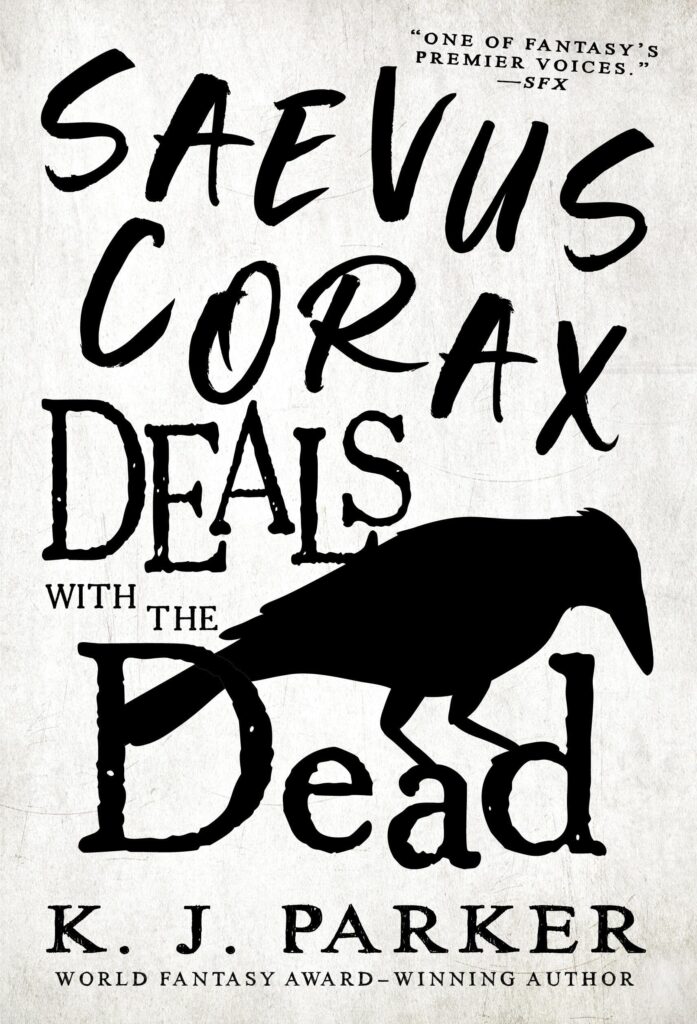
A professional liar feels morally compelled to finally tell the truth in the form of an autobiography. The result is an incredulous tale that is full of half-truths, artistic license, and (most likely) straight up lies.
What begins as a fairly mundane accounting of the practical work of battlefield salvage quickly turns into a mystery, a frame job, then quickly spirals out of control from there. And I do mean spirals; by the end you’re witnessing the early days of a world war on par with WW1. Saevus is a likable sort of jerk in a very complicated bind, and you find yourself laughing with him during his victories and laughing at him during his defeats.
(more…)
To summarize Saevus Corax Deals with the Dead in an adverb and adjective, I’d call it: tremendously fun.